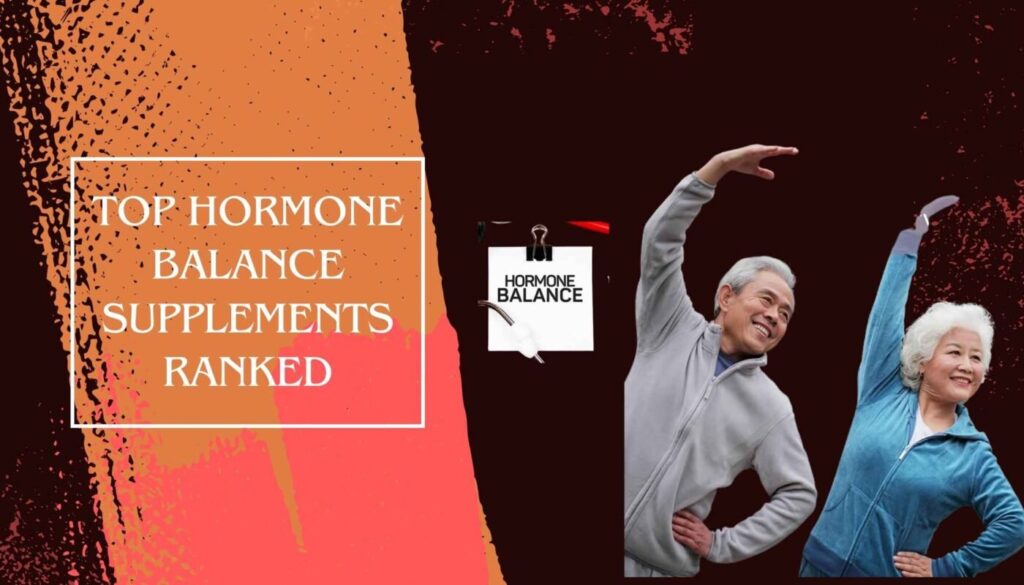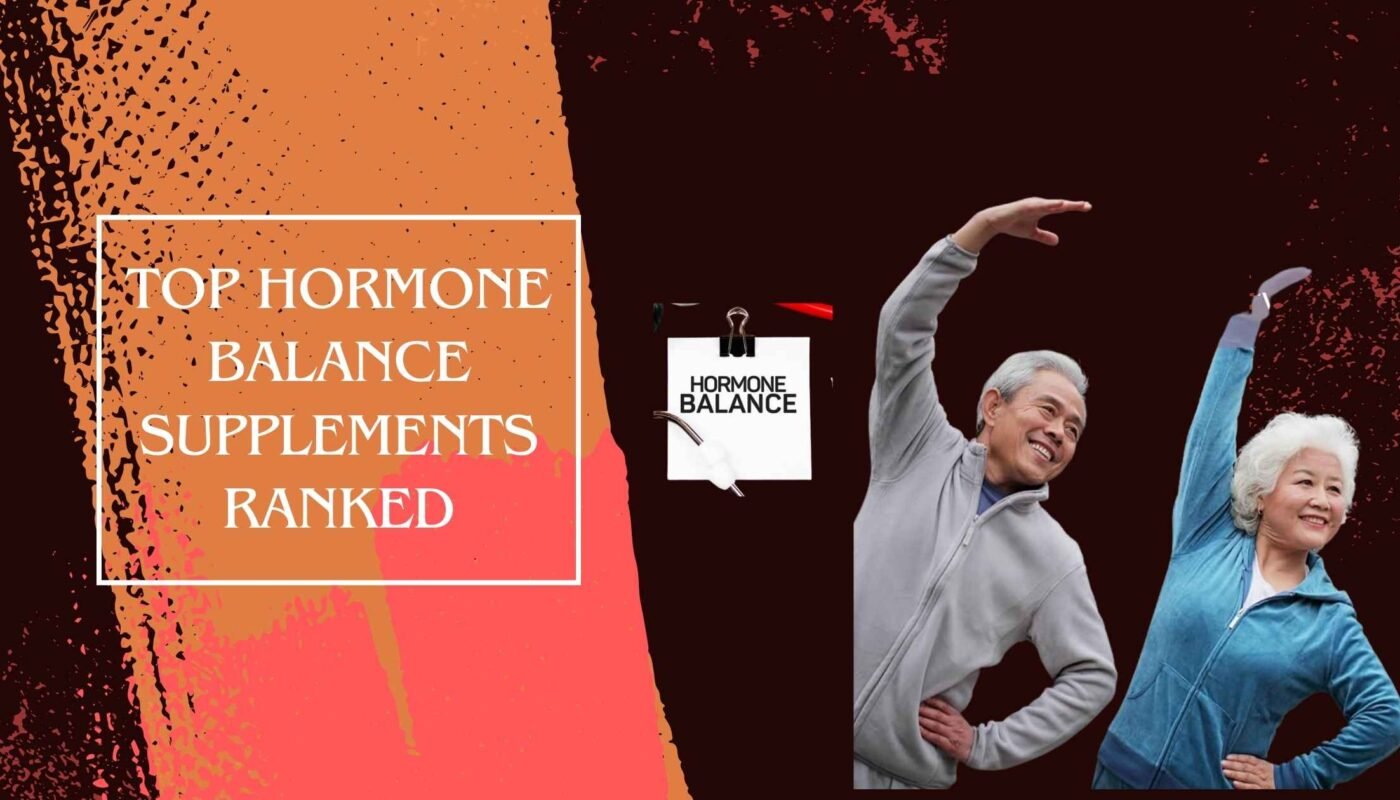
Supplements for Hormone Balance: A Comprehensive Guide
Hormone balance is crucial for overall health and well-being. When hormones are out of sync, it can lead to a cascade of issues, affecting everything from mood and energy levels to metabolism and reproductive health. While a healthy diet and lifestyle are fundamental, supplements for hormone balance can play a supportive role in restoring equilibrium. This guide delves into the world of supplements for hormone balance, exploring which ones are most effective, how they work, and important considerations before incorporating them into your routine.
Understanding Hormone Imbalance
Hormones are chemical messengers that travel through the bloodstream to tissues and organs. They regulate a wide range of bodily functions, including:
- Metabolism
- Growth and development
- Reproductive function
- Mood
- Sleep
Hormone imbalances can occur when there is too much or too little of a particular hormone. These imbalances can be caused by a variety of factors, including:
- Age
- Stress
- Poor diet
- Lack of exercise
- Underlying medical conditions
- Exposure to environmental toxins
Symptoms of hormone imbalance vary depending on which hormones are affected. Common symptoms include fatigue, weight gain or loss, mood swings, sleep disturbances, changes in appetite, and reproductive issues.
Key Supplements for Hormone Balance
Several supplements for hormone balance have shown promise in helping to regulate hormone levels and alleviate associated symptoms. It’s important to note that the effectiveness of these supplements for hormone balance can vary from person to person, and consulting with a healthcare professional is crucial before starting any new supplement regimen.
Vitamin D
Vitamin D, often called the “sunshine vitamin,” is actually a hormone itself. It plays a vital role in hormone production and regulation. Studies have shown that vitamin D deficiency is linked to various hormone imbalances, including those related to thyroid function and reproductive health. Supplementing with vitamin D can help improve hormone balance, particularly for individuals who are deficient. Consider a Vitamin D3 supplement for optimal absorption. [See also: The Importance of Vitamin D for Overall Health]
Magnesium
Magnesium is an essential mineral involved in hundreds of biochemical reactions in the body, including hormone production and regulation. It helps regulate cortisol, the stress hormone, and supports healthy thyroid function. Magnesium deficiency is common, and supplementation can help improve hormone balance and reduce stress levels. Magnesium glycinate is often recommended for its superior absorption and calming effects. Many consider magnesium to be one of the most important supplements for hormone balance.
Omega-3 Fatty Acids
Omega-3 fatty acids, found in fish oil and flaxseed oil, are essential for hormone production and cell function. They help reduce inflammation, which can contribute to hormone imbalances. Studies have shown that omega-3s can improve insulin sensitivity and regulate reproductive hormones. Look for a high-quality fish oil supplement with a good ratio of EPA and DHA. Maintaining a healthy balance of Omega-3 and Omega-6 fatty acids is important for overall hormonal health. Many women find that incorporating these supplements for hormone balance can significantly improve their well-being.
Adaptogens
Adaptogens are herbs that help the body adapt to stress. They work by regulating the hypothalamic-pituitary-adrenal (HPA) axis, which controls the body’s stress response. Some popular adaptogens for hormone balance include:
- Ashwagandha: Helps reduce cortisol levels and improve thyroid function.
- Rhodiola Rosea: Improves energy levels and reduces fatigue.
- Holy Basil: Helps regulate cortisol and blood sugar levels.
- Maca Root: Supports hormone balance, energy, and libido.
Adaptogens are a powerful class of supplements for hormone balance and can be especially helpful for individuals experiencing stress-related hormone imbalances. [See also: Understanding Adaptogens and Their Benefits]
Probiotics
The gut microbiome plays a crucial role in hormone regulation. An imbalance of gut bacteria can disrupt hormone production and metabolism. Probiotics, which are beneficial bacteria, can help restore gut health and improve hormone balance. Look for a probiotic supplement with a variety of strains and a high CFU count. A healthy gut is essential for optimal hormone function, making probiotics an important consideration among supplements for hormone balance.
DIM (Diindolylmethane)
DIM is a compound found in cruciferous vegetables like broccoli, cauliflower, and kale. It supports healthy estrogen metabolism by promoting the production of beneficial estrogen metabolites. DIM can help balance estrogen levels and reduce the risk of estrogen-related conditions. It’s often used as one of the supplements for hormone balance, particularly for women experiencing estrogen dominance. [See also: The Benefits of DIM for Estrogen Balance]
Chasteberry (Vitex)
Chasteberry, also known as Vitex, is an herb traditionally used to regulate menstrual cycles and alleviate PMS symptoms. It works by affecting the pituitary gland, which controls the release of several hormones, including prolactin. Chasteberry can help balance hormones and improve fertility. Many women find chasteberry to be effective among supplements for hormone balance, especially for managing premenstrual symptoms.
Evening Primrose Oil
Evening primrose oil is rich in gamma-linolenic acid (GLA), an omega-6 fatty acid that can help reduce inflammation and balance hormones. It’s often used to alleviate PMS symptoms, such as breast tenderness and mood swings. While more research is needed, some studies suggest that evening primrose oil can be a helpful addition to supplements for hormone balance.
Considerations Before Taking Supplements
Before taking any supplements for hormone balance, it’s essential to consider the following:
- Consult with a healthcare professional: A doctor or qualified healthcare provider can help you determine the underlying cause of your hormone imbalance and recommend the most appropriate supplements. They can also assess potential interactions with medications you may be taking.
- Choose high-quality supplements: Look for supplements from reputable brands that have been third-party tested for purity and potency. This ensures that you’re getting a product that contains what it claims and is free from contaminants.
- Start slowly: Begin with a low dose and gradually increase it as needed. This allows you to monitor your body’s response and minimize potential side effects.
- Be patient: It can take several weeks or months to see noticeable results from supplements for hormone balance. Consistency is key.
- Consider your lifestyle: Supplements are most effective when combined with a healthy diet, regular exercise, and stress management techniques.
The Importance of Lifestyle Factors
While supplements for hormone balance can be beneficial, they are not a substitute for a healthy lifestyle. Diet, exercise, and stress management all play crucial roles in hormone regulation.
Diet
A balanced diet rich in whole foods, including fruits, vegetables, lean protein, and healthy fats, provides the nutrients your body needs to produce and regulate hormones. Avoid processed foods, sugary drinks, and excessive amounts of caffeine and alcohol, as these can disrupt hormone balance.
Exercise
Regular exercise helps improve insulin sensitivity, reduce stress, and boost overall hormone health. Aim for at least 30 minutes of moderate-intensity exercise most days of the week. Both cardiovascular exercise and strength training are beneficial.
Stress Management
Chronic stress can wreak havoc on your hormones. Practice stress-reducing techniques such as yoga, meditation, or spending time in nature. Getting enough sleep is also crucial for hormone balance.
Conclusion
Supplements for hormone balance can be a valuable tool for restoring equilibrium and alleviating associated symptoms. However, it’s essential to approach supplementation with caution and consult with a healthcare professional before starting any new regimen. Remember that supplements are most effective when combined with a healthy diet, regular exercise, and stress management techniques. By taking a holistic approach to hormone health, you can optimize your well-being and thrive.

